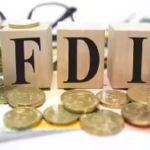China-based mobile application, TikTok’s fate in the US hangs in the balance after the Supreme Court upheld a law that could lead to a ban on the platform as soon as Sunday, CBS News reported.
The law passed with bipartisan support in April, cites national security concerns due to TikTok’s data collection practices and ties to the Chinese government
President-elect Donald Trump wrote in a social media post that he would make his “decision on TikTok” in “the not too distant future,” but that he “must have time to review the situation,” as per CBS News.
“We conclude that the challenged provisions do not violate the petitioners’ First Amendment rights,” the court said in a unanimous unsigned opinion.In a statement on Friday evening, TikTok said that “the statements issued today by both the Biden White House and the Department of Justice have failed to provide the necessary clarity and assurance to the service providers that are integral to maintaining TikTok’s availability to over 170 million Americans. Unless the Biden Administration immediately provides a definitive statement to satisfy the most critical service providers assuring non-enforcement, unfortunately TikTok will be forced to go dark on January 19.”
The court’s ruling came days before the law, which was passed with bipartisan majorities of Congress last April, is set to take effect. TikTok and a group of content creators who use the app argued the law infringes on their free speech rights, and the Supreme Court heard arguments in their bid to block it one week ago.
“There is no doubt that, for more than 170 million Americans, TikTok offers a distinctive and expansive outlet for expression, means of engagement, and source of community. But Congress has determined that divestiture is necessary to address its well-supported national security concerns regarding TikTok’s data collection practices and relationship with a foreign adversary,” CBS reported, quoting the court’s opinion.
The US administration’s concerns centre on TikTok’s extensive data collection practices and its connections to the Chinese government.



